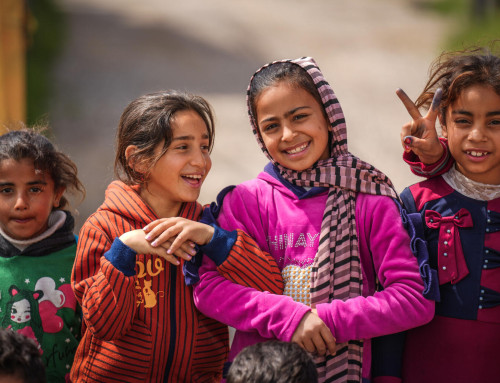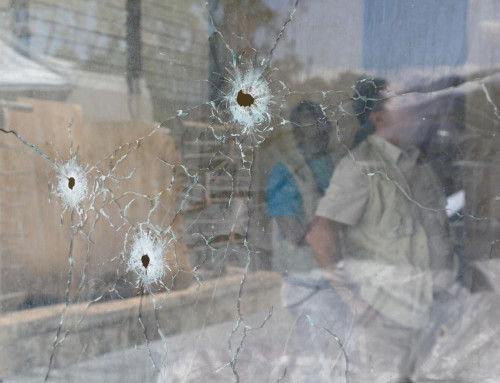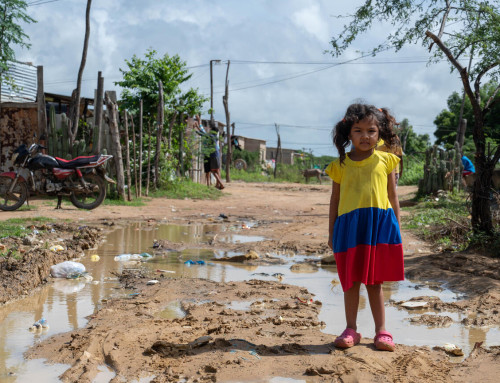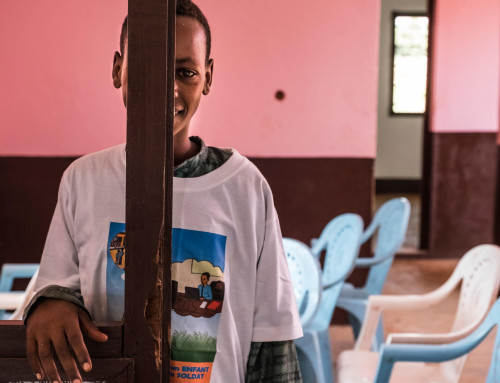Children living amidst hostilities are facing different risks based on identity factors and a new analysis released today sheds light on the importance of better understanding the gender dimensions of child rights violations during armed conflict to inform prevention and response strategies.
The paper The Gender Dimensions of Grave Violations Against Children In Armed Conflict, launched today during a high-level event co-sponsored by Malta and the United Kingdom, further stresses the importance of supporting the United Nations and partners on the ground so they have appropriate resources and capacities to analyze grave violations against children through a gender lens.
“With this first study, we understand that integrating a gender perspective in the implementation of the Children and Armed Conflict mandate can contribute to a better comprehension of the impact of unseen gender norms and biases when it comes to the protection of children,” the Special Representative of the Secretary-General for Children and Armed Conflict, Virginia Gamba, said.
“The study further shows that dedicating adequate resources to the gender analysis of grave violations against children in armed conflict can help expose how gender is being instrumentalized in different conflict settings – and ensure that we are better equipped at responding and preventing grave violations,” Virginia Gamba added.
The information gathered in the study Gender dimensions of Grave Violations against Children in Armed Conflict emphasizes the significance of understanding the interlinked nature of grave violations against children for holistic, age-appropriate and gender-responsive prevention and response. It provides tangible evidence on how children are affected differently by conflict based on their gender and other identity-based characteristics including ethnicity, race, religion, caste, ability, economic status, sexual orientation, gender identity and expression.
“For instance, the proportion of girls associated with armed groups tends to be vastly under-estimated because girls are generally less visible than boys and often released in an informal manner, blocking their reintegration and ultimately impacting the figures of girls recruited and used,” emphasized Virginia Gamba.
In the last few years, significant progress has been achieved at compiling sex-disaggregated data in most countries on the Children and Armed Conflict agenda, but an in-depth gender analysis requires more than numbers, for data alone will not increase our understanding about individual, group, or environmental risk factors for children driving their victimization in different ways, or the profile and motivation of perpetrators.
The paper shows that the greater the monitoring capacity of the UN on the ground, the better its ability to conduct gender analysis and integrate a gender perspective in the monitoring and reporting of grave violations – as well as in the response. Such analysis can also inform international policy, advocacy as well as accountability.
“I call on the international community to continue to support politically and financially child protection expertise on the ground. Integrating a broader gender perspective to the Children and Armed Conflict agenda would allow responses to grave violations to be more context-specific and inclusive of diverse population groups, which would in turn support and strengthen the mandate and broaden its partnerships,” concluded Virginia Gamba.
Note to editors:
The analysis includes interviews with Members of the Country Task Forces on Monitoring and Reporting (CTFMRs) as well as consultations with gender and child protection experts from five countries on the Children and Armed Conflict agenda: Afghanistan, Colombia, the Democratic Republic of the Congo, Nigeria and Yemen. It was produced with the generous contribution by the governments of the United Kingdom and Malta.
###
For additional information, please contact:
Fabienne Vinet, Communications Officer, Office of the Special Representative of the Secretary-General for Children and Armed Conflict
+1-212-963-5986 (office) / +1-917-288-5791 (mobile) / vinet@un.org
Follow us on social media:
https://www.instagram.com/nochildreninwar/
www.twitter.com/childreninwar
www.facebook.com/childrenandarmedconflict






